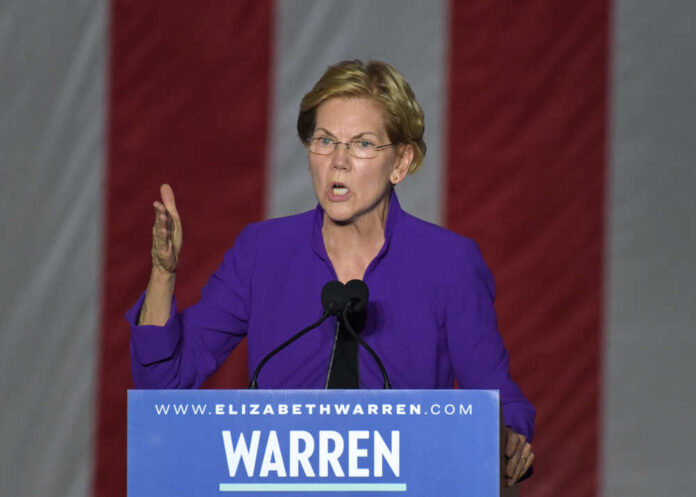
President-elect Donald Trump has appointed Elon Musk and Vivek Ramaswamy to co-lead the Department of Government Efficiency (DOGE), sparking a heated debate about government reform and political appointments.
I just read that Elizabeth Warren criticized Musk and Ramaswamy being named as heads of government efficiency, sarcastically saying, “Seems real efficient.” To me, this highlights how out of touch she is—or how relentless her disdain has become. It’s telling that she can’t find… pic.twitter.com/j2UvSb0oFQ
— Jaren L Davis (@jarendavis) November 13, 2024
Trump’s economic plans, aims to overhaul federal bureaucracy and reduce waste. However, the decision has drawn criticism from Democratic Senator Elizabeth Warren, who questions the effectiveness of the dual leadership. Warren’s Critique and Republican Response Senator Elizabeth Warren took to social media to voice her concerns, stating, “The Office of Government Efficiency is off to a great start with split leadership: two people to do the work of one person. Yeah, this seems REALLY efficient.” Her sarcastic comment highlights skepticism about the department’s structure and potential effectiveness.
Republicans and supporters of the appointment have pushed back against Warren’s criticism. They argue that Musk and Ramaswamy’s combined expertise in business and technology makes them uniquely qualified to tackle government inefficiencies. Elon Musk responded to the initiative, saying, “This will send shockwaves through the system, and anyone involved in Government waste, which is a lot of people!”
The Role and Structure of DOGE The Department of Government Efficiency is designed to operate independently, providing external advice to streamline government operations. Trump described the initiative as paving the way “for my Administration to dismantle Government Bureaucracy, slash excess regulations, cut wasteful expenditures, and restructure Federal Agencies.”
Elon musk and Vivek Ramaswamy will not be taking a salary as efficiency experts. This destroys the left’s argument against the two of them. 😄
Elon destroyed Elizabeth Warren’s argument. 👇🏻👇🏻 https://t.co/Maj9R3QEN2
— Patriotic Night Owl (@Patriot_Deanna) November 14, 2024
The department’s structure is similar to past efficiency commissions, such as Ronald Reagan’s Grace Commission. Musk and Ramaswamy’s roles are informal and do not require Senate approval. The panel is expected to collaborate with the White House and Office of Management and Budget to drive large-scale structural reform, likened to a modern “Manhattan Project” for government efficiency.
Musk’s Involvement and Political Alignment Elon Musk has been a significant supporter of Trump’s campaign, both financially and through his social media platform X. His close involvement with Trump post-election, including stays at Mar-a-Lago and attendance at meetings, has solidified his position within the incoming administration. Supporters of the appointment point to Musk’s previous success in streamlining operations at Twitter as evidence of his potential to improve government efficiency. However, critics argue that his lack of government experience may be a hindrance.
Broader Implications and Political Discourse The appointment of Musk and Ramaswamy to DOGE reflects a broader conversation about government effectiveness and political ideologies. Supporters view it as a promising initiative to tackle longstanding issues of bureaucratic inefficiency, while critics see it as potentially disruptive to established government processes.
This debate underscores the ongoing ideological divide in American politics, particularly regarding the role and size of government. The controversy surrounding DOGE is likely to continue as the Trump administration takes shape and begins implementing its policy agenda.
As the Department of Government Efficiency prepares to launch, all eyes will be on Musk and Ramaswamy to see if they can deliver on their promises of reform and efficiency in federal operations. The success or failure of this initiative could have significant implications for future government restructuring efforts and the broader political landscape.














